Great Britain’s first series of Davis Cup matches in the post-Andy Murray era ended in failure in Manchester.
Defeats by Argentina and Canada in the final two Group D ties rendered the opening victory over Finland redundant, meaning Leon Smith’s men did not qualify for the finals in Malaga in November.
There were plenty of glum faces in the AO Arena on Sunday afternoon after Dan Evans’ defeat by Denis Shapovalov in the opening clash against Canada confirmed Britain’s elimination.
But the overall picture was more nuanced, and there are reasons to be optimistic as British tennis continues to acclimatise to a world without Dunblane’s Murray starring in the blue national shirt.
1. Drama king Dan Evans set to be the next talisman to exit the stage
With Murray retiring from professional tennis at this summer’s Paris Olympics, the natural successor to his role as chief talisman was seemingly already in place.
Since he made his David Cup debut 15 years ago against Poland in the Group I semi-finals, Evans has punched above his weight on British duty.
In 2012, the 21-year-old turned the tide to beat Martin Klizan, ranked 156 places higher in the world, in a five-set thriller that clinched a 3-2 win over Slovakia.
And just last September the boy from Birmingham was the driving force behind one of the most dramatic finishes in the competition’s long history.
Evans and Neal Skupski saved four match points against France to win the deciding doubles rubber in an unforgettable final-set tie-break.
So the stage was set at the weekend for Evans to take the baton and produce some more Manchester heroics.
Sadly it didn’t quite happen.
The former world number 25 has a penchant for drama, as he recently showed in beating Karen Khachanov from 4-0 down in the final set of what was to become the longest US Open match in history.
And Evans flirted with another improbable comeback when he batted away five match points against Argentina’s Tomás Martín Etcheverry in the second set.
One of the saves was courtesy of a looping lob that a certain Mr Murray would have been proud to have called his own.
But on this occasion Evans’ gutsiness could only delay the defeat, and two days later he was comfortably outclassed by Canada’s Shapovalov.
Evans is 34, so potentially has a few more ties left in him.
But he strongly hinted on Sunday after the Shapovalov defeat that he is set to retire from Davis Cup matches.
Evans said: “There’s a good saying, which I wasn’t very good at when I was younger: ‘You’ve got to learn when to leave the party’. I need to have a think.”
While Evans also asserted that the Davis Cup saved his career when he was younger, these days his country’s shirt seems to hindering it.
After going on a torrid run since last year’s France tie, Evans sacrificed the 500 points he gained by winning the 2023 Washington Open to play doubles alongside Murray in this year’s Olympics.
Now down to 178 in the world rankings, Evans has to recover the hard way, without the luxury of automatic selection for many tournaments.
He has now surpassed Andy Murray and Mike Sangster in the British all-time Davis Cup list by playing in his 26th, 27th and 28th ties, leaving him behind only Bobby Wilson.
Having given so much to his country, it now seems logical – and justifiable – that he will look after himself as he tries to salvage his professional career.
If this was the last we saw of Evans, then he will be a big loss.
His ability to work the British crowd into a frenzy through charisma and gesture makes him a team player who will be hard to replace.
The large cutout pictures of Evans’ face brought by fans into the AO Arena illustrated the size of the gap that needs to be filled.
2. Jaded Jack Draper needs to make tough decisions
With Cameron Norrie injured and now into his 30th year, Jack Draper is Britain’s big hope for both the present and future.
Fresh from his run to the US Open semi-finals, Draper arrived in Manchester feeling anything but fresh.
Team captain Leon Smith mercifully let the weary 22-year-old sit out the Finland tie, before he was thrust into action against Argentina’s Francisco Cerundolo and Canada’s Felix Auger-Aliassime.
Draper performed solidly in both matches, particularly in a high-quality first set against Auger-Aliassime.
But both opponents were just a little bit better, narrowly edging him out in all four sets he played.
For spectators in the AO Arena, the tell-tale sign of Draper’s frustration was a comprehensive dismantling of his racket after that first set against Auger-Aliassime.
For the media, it was evident by his manner and words in both of his post-defeat press conferences.
Looking as though he had the weight of the world on his shoulders, Draper berated the “mental calendar” that tennis players have endured.
“Since Miami [in March], I just haven’t had any time. We went straight to the clay, straight on to the grass, the Olympics, out to Montreal, Cincinnati, training week, US Open, here.
“For the players who do well [in New York] it’s very difficult. It’s my opinion that it’s going to be very hard for players of my age to achieve longevity.”
He added on Friday that withdrawing from this event was not an option because “I love playing for my country,” which was great to hear.
But Draper, with an air of resignation, added on Sunday that he is set to fly out to Tokyo on Tuesday for the Asian swing.
One of the trappings of success in tennis is choice.
Now he has broken into the top 20, Draper is in a position to pick and choose his schedule.
If he feels drained after a gruelling season – and he certainly can’t be blamed for that – then take at least the next tournament off to recharge.
Draper hopefully has a long career ahead of him and, after finally having an injury-free season, he should box clever whenever possible.
3. Variety is vital as doubles beckons for British No 1
Tiredness notwithstanding, Draper also paid for his lack of variety during the two matches.
He is a special talent who, like Rafa Nadal, is a right-hander who plays left-handed.
This means he has ‘two forehands’, making him strong on both wings.
Accompanied by a strong serve, Draper is rich in potential.
To fully realise it, though, he need look no further than Evans and Murray for the way forward.
The duo may have lacked Draper’s weapons, but they have eked everything out of their careers by mixing things up on the court.
Evans makes up for his lack of power and big serve by nullifying bigger-hitting opponents with his expert backhand slice. He also makes timely interventions at the net.
Murray’s glittering career is even more outstanding given that, even during his prime, only his backhand stood alongside the sport’s best.
But he proved himself an all-time master in tactics and shot selection, regularly bamboozling opponents with unsuspecting shots that were a nightmare to deal with.
On grass in particular, he enjoyed going to the net and his lobs – arguably the best the game has ever seen – deterred his opponents from coming forward.
Draper, meanwhile, spends most of his time at the baseline and the key to his narrow defeats at the weekend was that his opponents were better at mixing things up.
When Draper did try something different, at 5-5 break point in the second set against Auger-Aliassime, he couldn’t pull off his attempted serve and volley. From that point the match was effectively over.
He shouldn’t let that put him off, though.
A different play earlier in a match can create indecision and caution in an opponent, even if it doesn’t come off.
And becoming less predictable can finish points earlier, which will be essential to protect and preserve his body in the long term.
Draper is still young and has time to add other elements to his game.
Smith, his Davis Cup captain, said on Sunday that Draper will play doubles sometime in the future, which is a firm step in the right direction.
4. Manchester shines even when the team don’t
Any suggestion that Manchester got lucky last year was banished at the weekend.
In 2023 the city held Davis Cup ties for the first time since 1994.
When Evans and Skupski produced the remarkable doubles victory against France the atmosphere was electric.
But had Evans inspired the crowd or was it vice-versa? Or did they feed off each other equally?
Just over 6,000 fans turned up to see the Finland tie, but a daytime match against the weakest team in the group on one of the first Wednesdays of the English school year was a hard sell.
By Friday the attendance had risen to 9,000, with Liverpool and Argentina-supporting footballer Alexis Mac Allister among them.
And for the decisive final tie against Canada, when only a 3-0 win would put Britain through, there was a 15,700-strong crowd at the AO Arena.
This was more than Wimbledon’s Centre Court can hold – and a new record for a Davis Cup tie in this country.
But what really answered the ‘lucky’ question regarding last year’s event was the reaction to Evans’ loss in the first tie against Canada.
This may have rendered the final two rubbers meaningless, but that didn’t bother the crowd.
They remained pumped up and boisterous as Draper suffered defeat and loudly encouraged Henry Patten and Neal Skupski to straight-sets victory in the last match.
Glasgow cannot be criticised for its hosting of Davis Cup ties for more than a decade before the move to Manchester.
With Murray in his pomp, Scotland’s biggest city was the right place at the right time.
Manchester has shown in the past 12 months that it is a worthy successor.
5. Murray silence hints at retired star’s future
Andy Murray remains a talking point even now he is no longer an active player.
Evans and Draper happily waxed lyrical about his influence on their careers, and Smith heartfully suggested that something suitable could replace the aborted Murray legacy scheme in Dunblane.
Responding to a question from The Courier, Glasgow-born Smith said of Murray: “He has left a massive impression on every single player and every single coach who has come near him.
“And that doesn’t go away.
“It’s really important that the Murrays are kept at the forefront because what they have achieved may never happen again.
“And I think that’s certainly how the LTA feels about it as well.”
It was curious that while the key Davis Cup members had plenty to say about Murray, the now-retired 37-year-old had nothing to say about the Davis Cup.
On Twitter X he made no reference to his former teammates battles’ in Manchester.
His only activity during the tournament was reposting an LTA video showing the moment British No 4 Sonay Kartal won her first career WTA Tour title at the Jasmin Open in Tunisia.
Perhaps this is the beginning of a concerted effort by Murray to step outside the realm of British men’s tennis to create the breathing space for others to flourish.
Time will tell.
6. Debutants Harris and Patten present case for strength in depth
Two players on the fringes of the GB team gratefully seized their Davis Cup debuts at the weekend.
Billy Harris, 29, replaced the fatigued Draper to beat Finnish number one Otto Virtanen in straight sets on Wednesday.
And Henry Patten, 28, stood in for Evans alongside Skupski in the two-set doubles defeat of Gabriel Diallo and Alexis Galarneau.
In a strong endorsement of the atmosphere Smith has generated in the British camp, both men looked comfortable with the expectation of representing their country.
This was particularly noticeable during Harris’ victory in a high-stakes encounter.
Seeing two players enjoying first-time success in their late 20s may inspire other British players to persevere during difficult times.
Away from the Davis Cup, Edinburgh-born Jacob Fearnley, 23, beat Quentin Halys – a fifth success over a French player in five days – to win his third challenger title of the year at Rennes on Sunday.
Dundee-born Charlie Robertson, 17, recently reached the US Open boys semi-finals, while Wolverhampton’s Henry Searle, 18, last year became the first British winner of the Wimbledon boys’ singles title since 1962.
These are all promising signs for the future.
7. Davis Cup continues to attract big names and big celebrations
The Davis Cup has been criticised since its format changed in 2019.
But Jannik Sinner, Carlos Alcaraz, Novak Djokovic and other top players continue to turn out for their country.
It could even be argued that world No 1 Sinner would not have won his two slams this year had it not been for saving three match points against Djokovic en route to winning the Davis Cup for Italy last year.
And for a visual representation of the enduring importance of the Davis Cup, check out Argentina captain Guillermo Coria’s reaction to Cerundolo beating Draper to clinch qualification on Friday.
This competition, it seems, is still in good health.
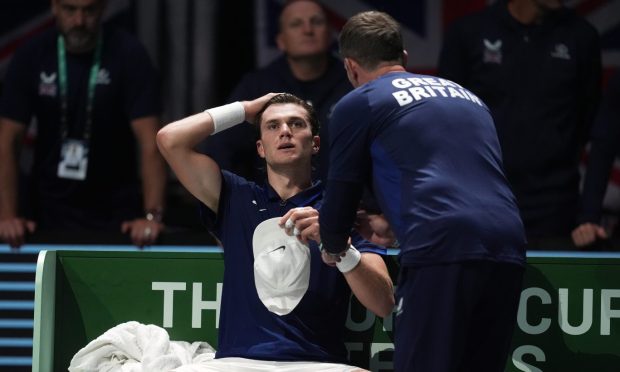
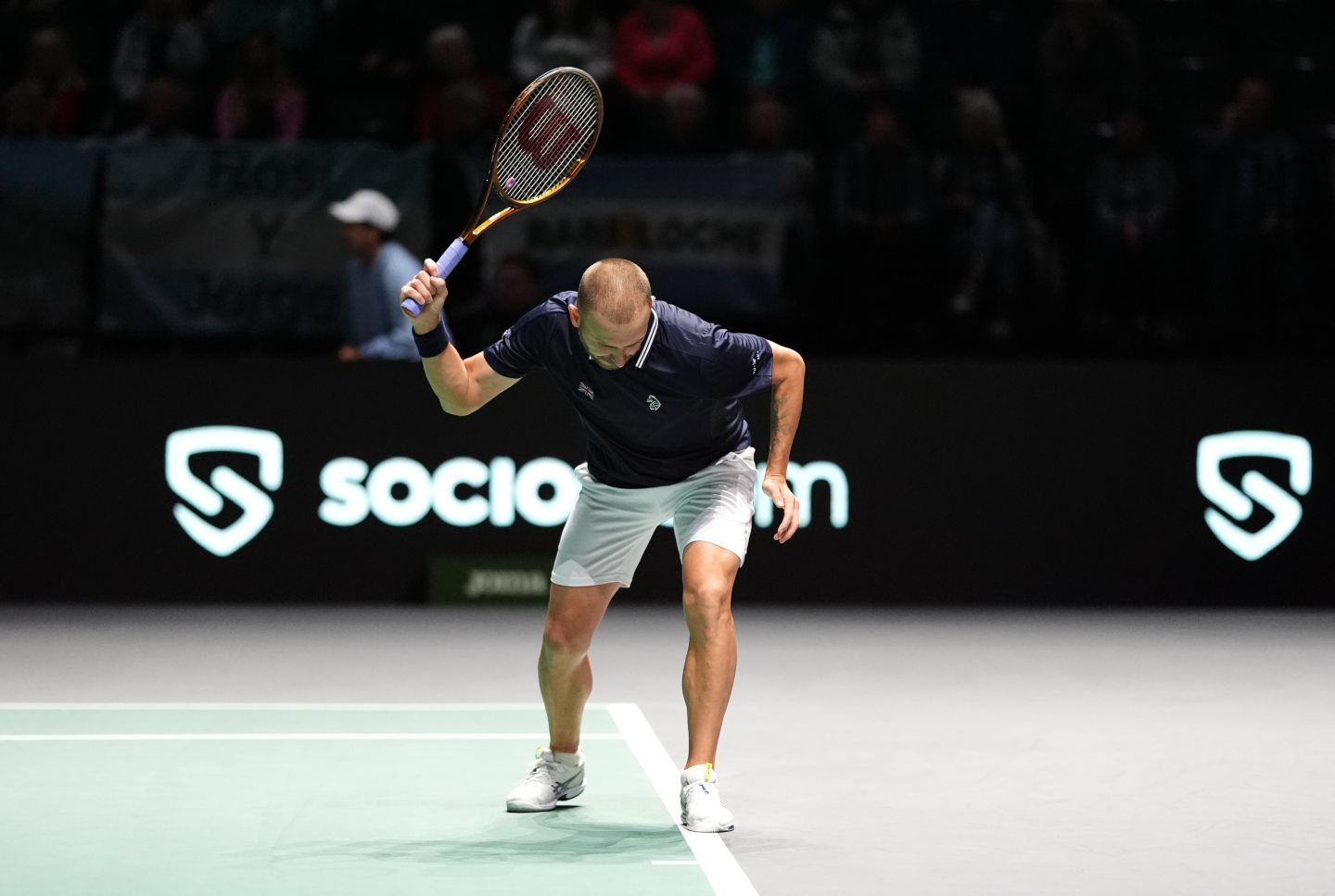
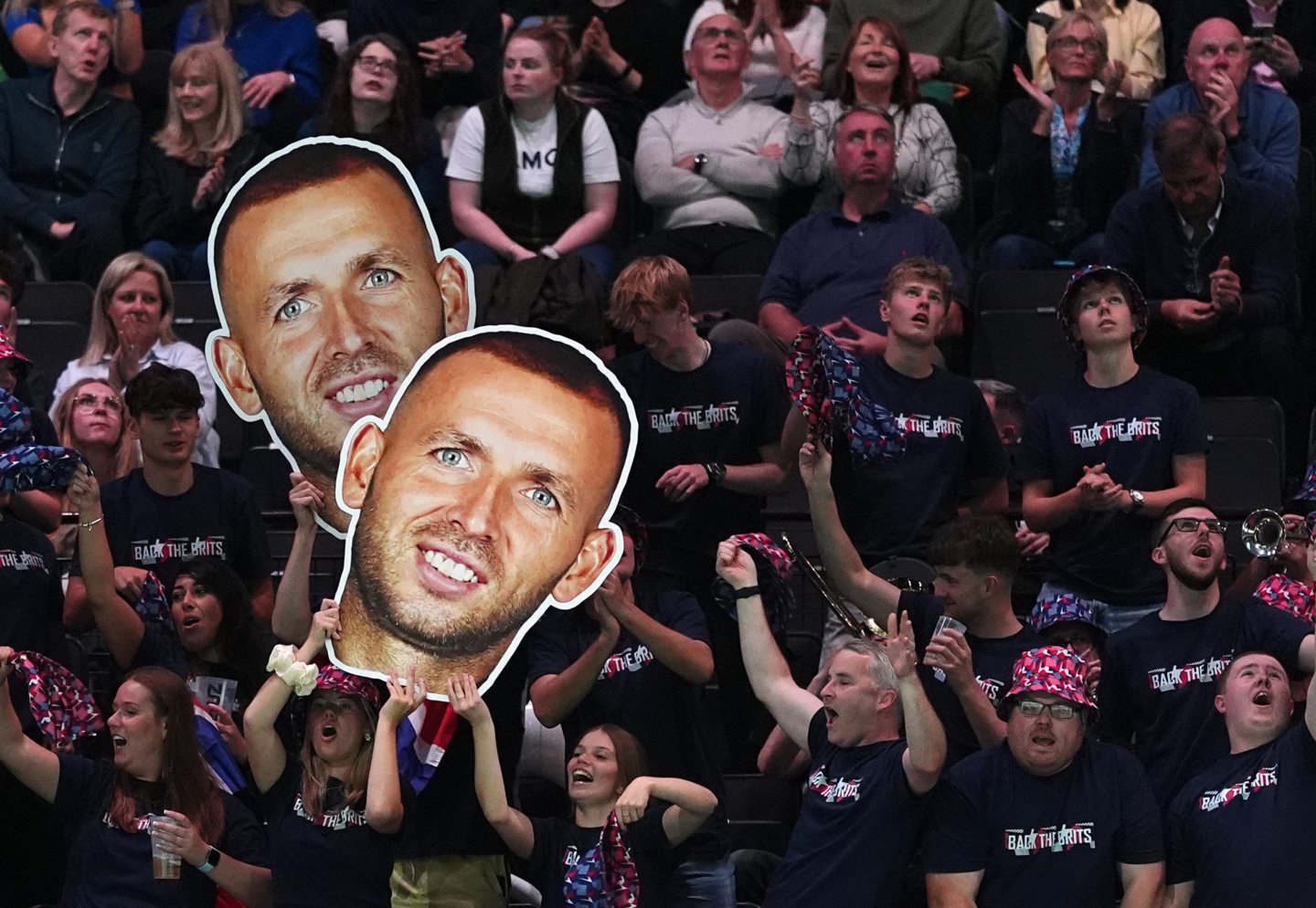
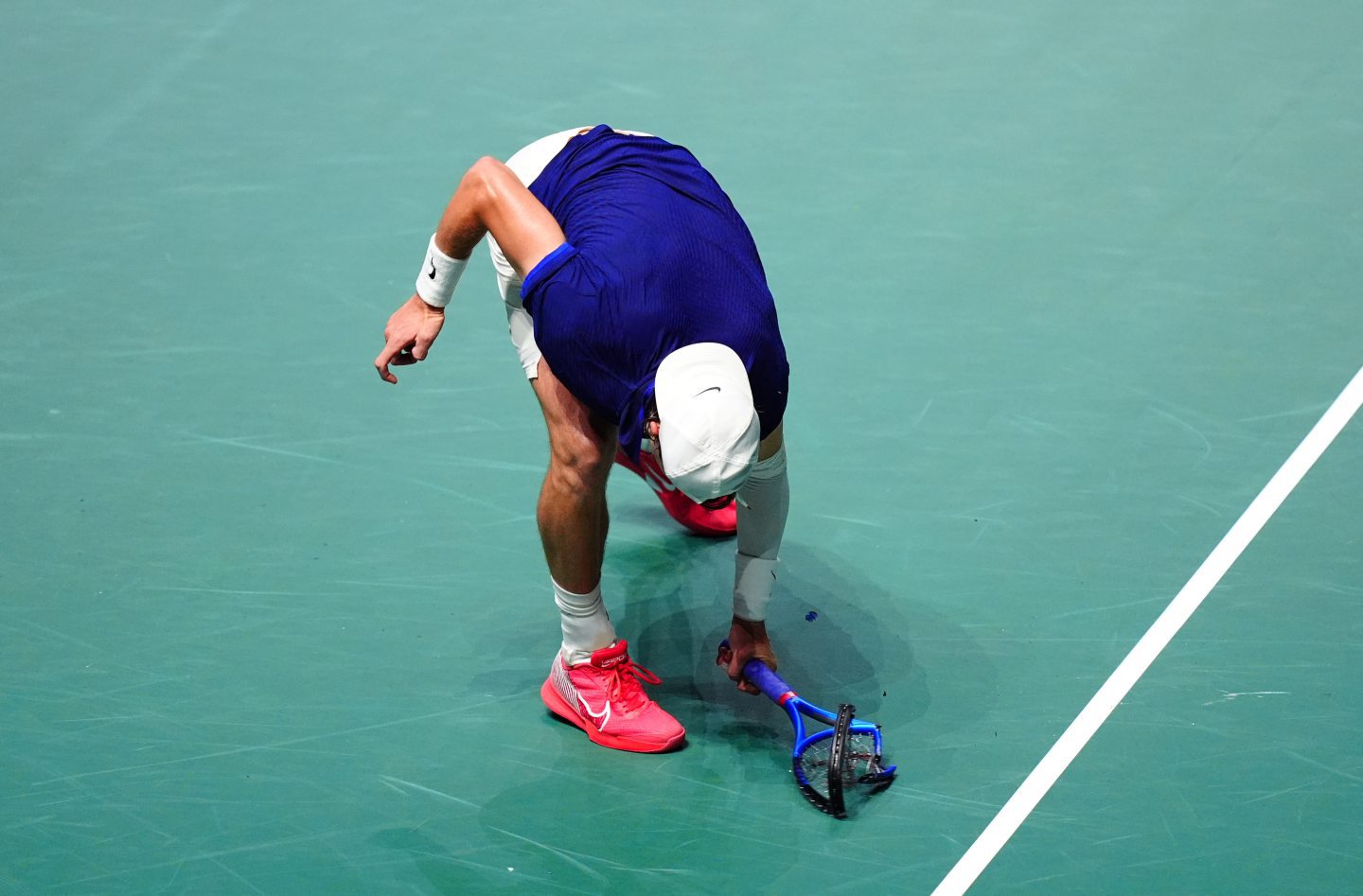
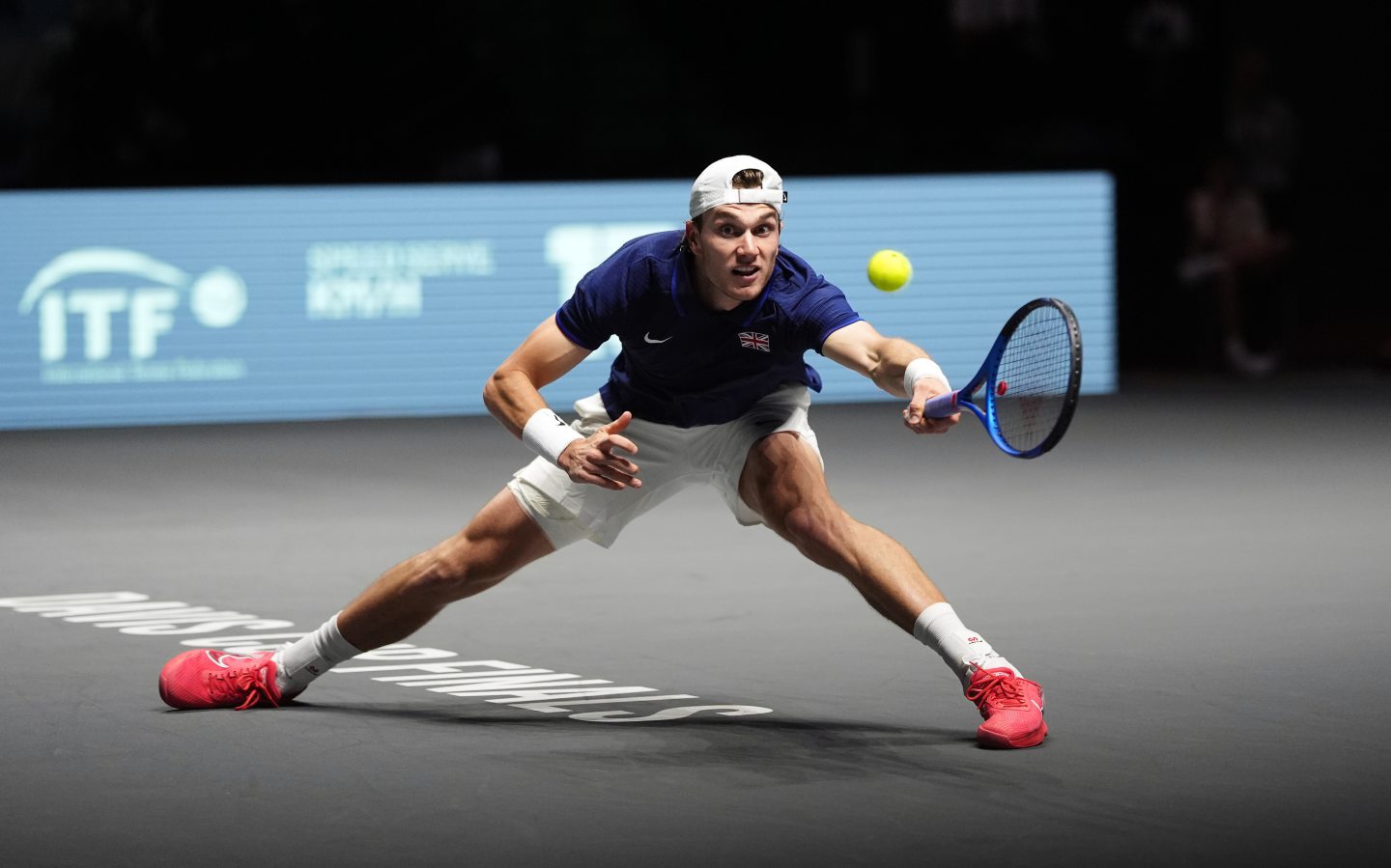
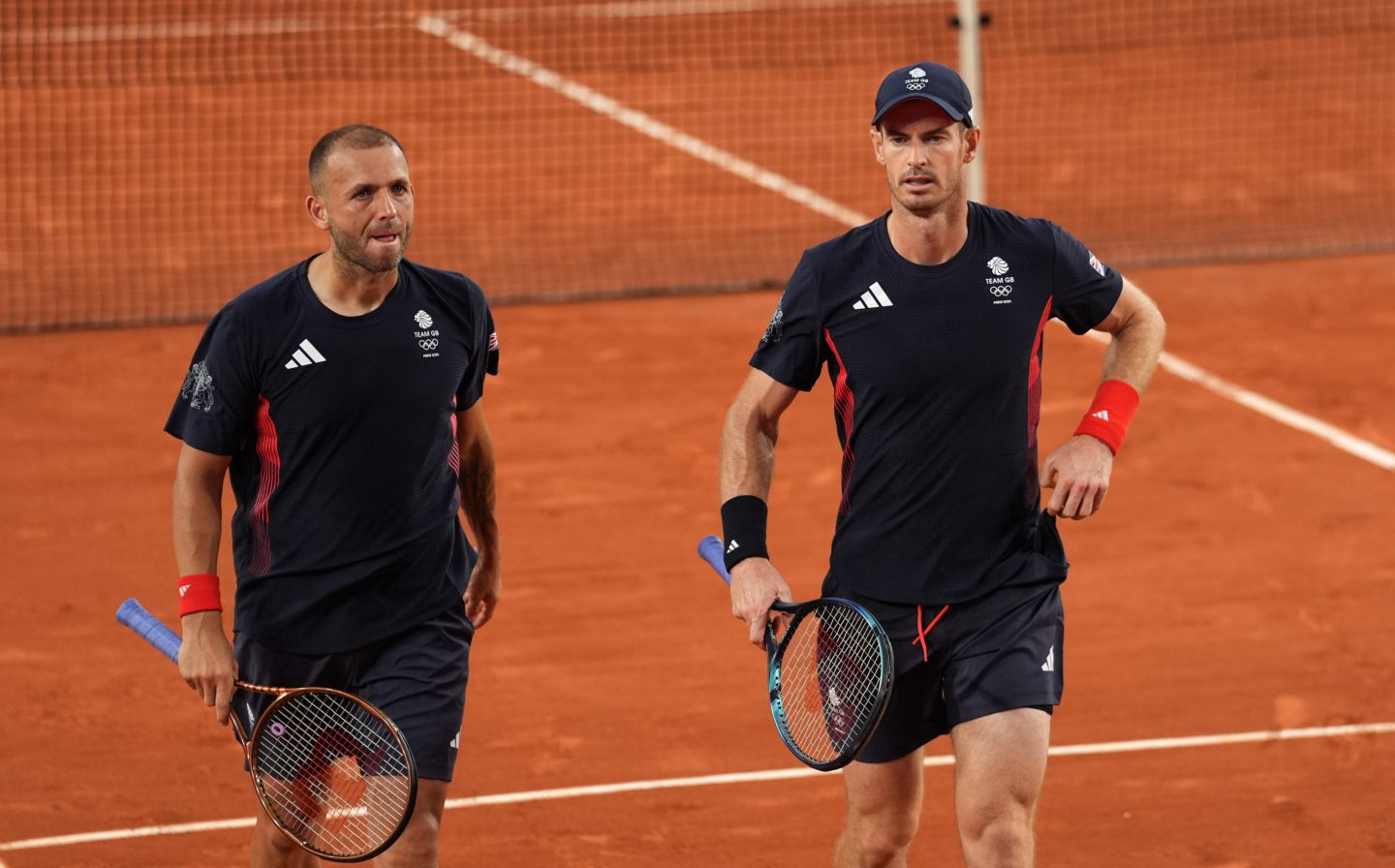
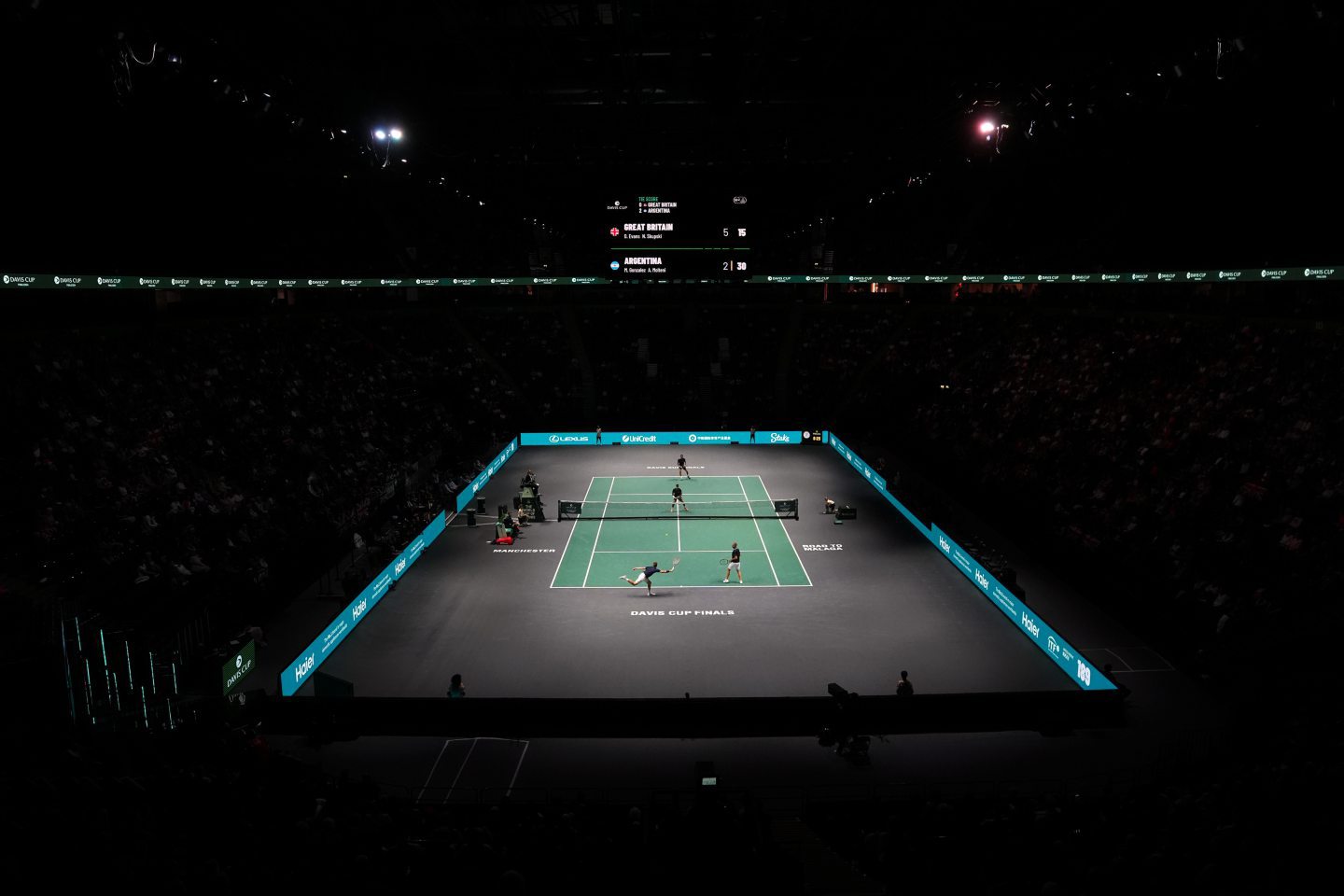
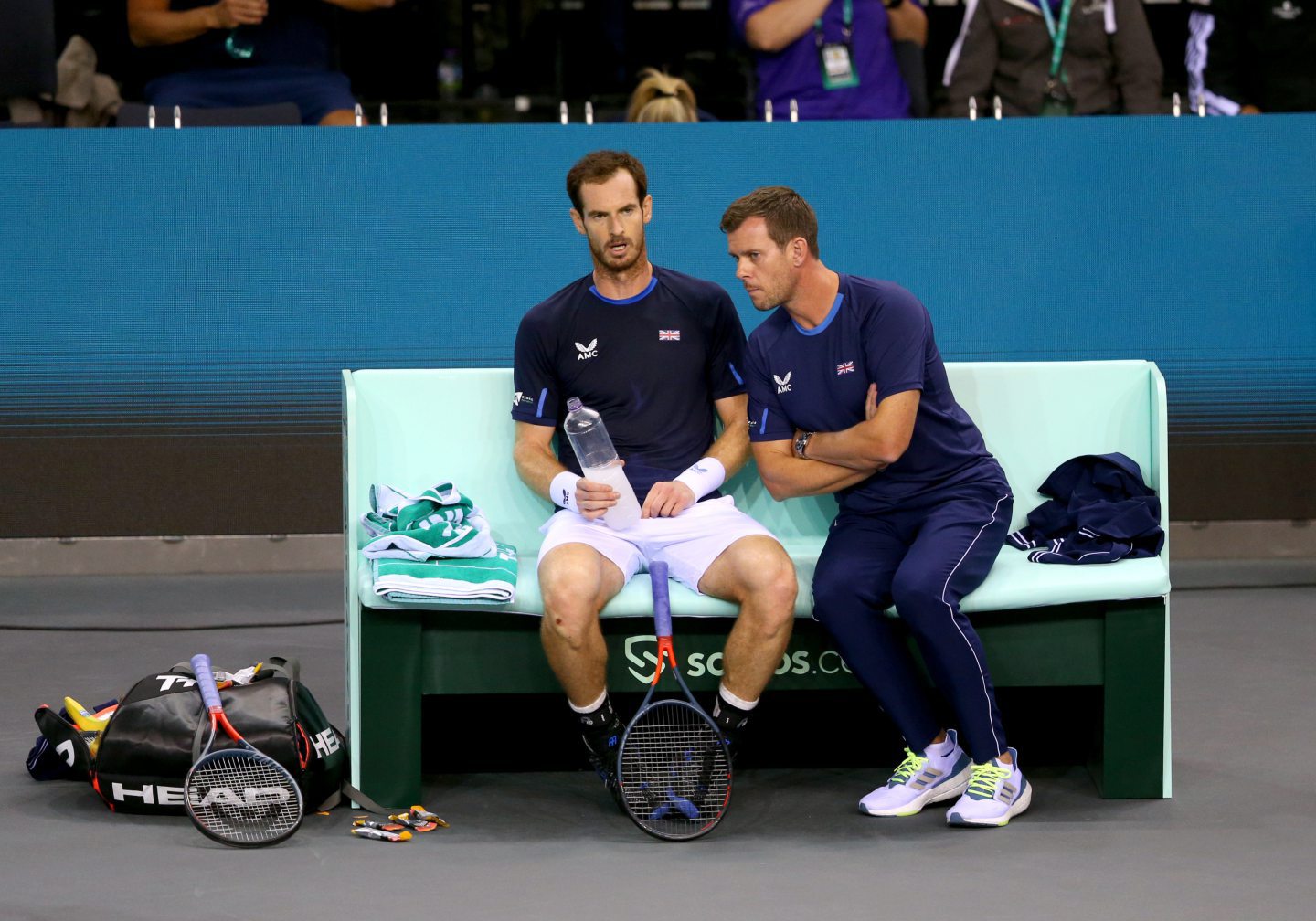
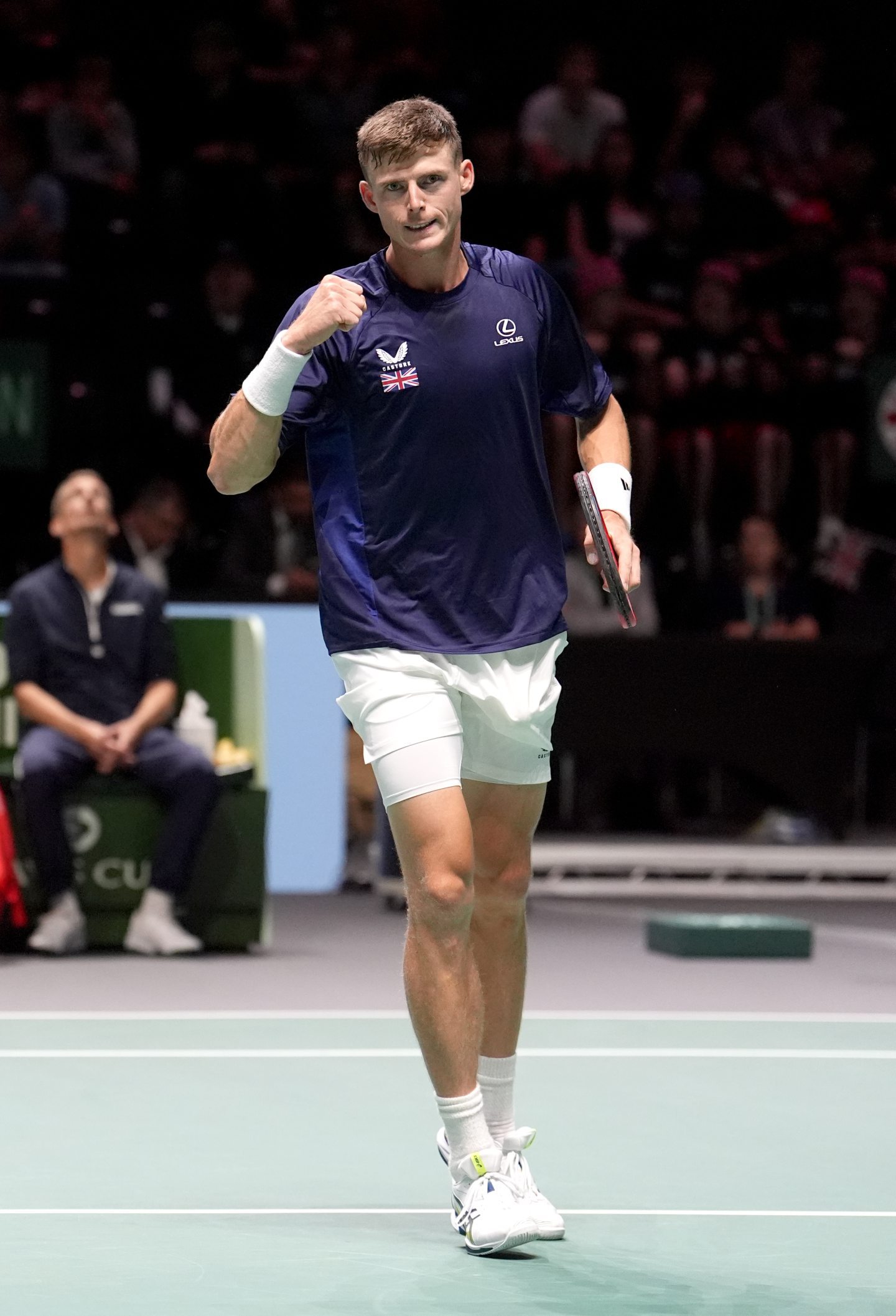
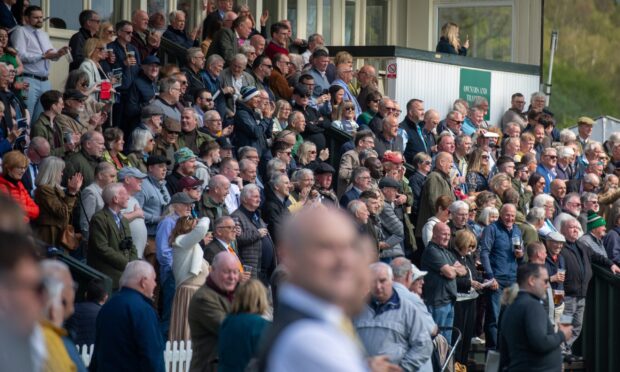


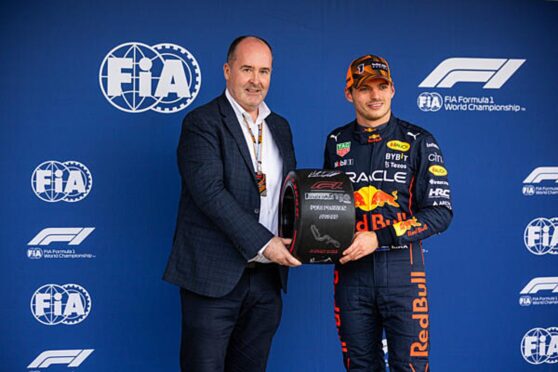
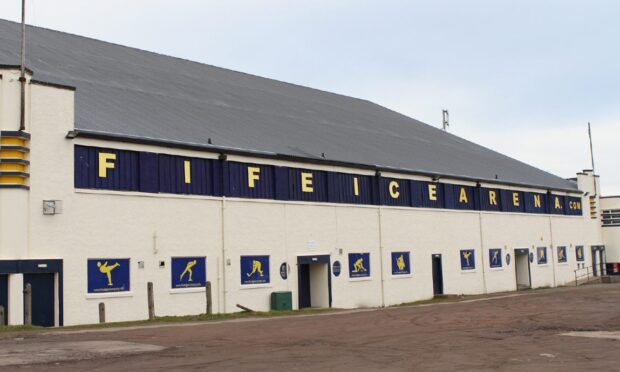
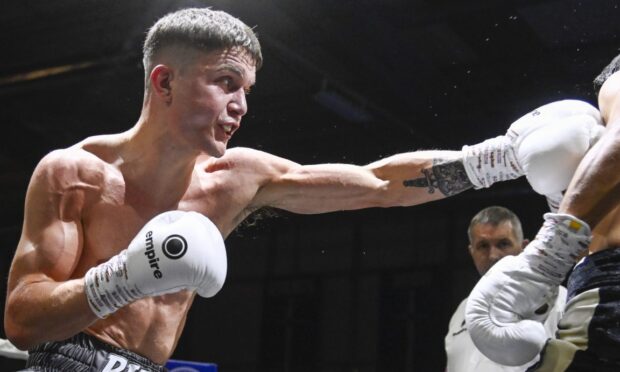
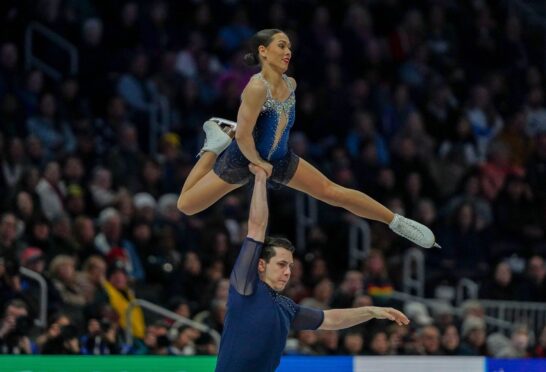
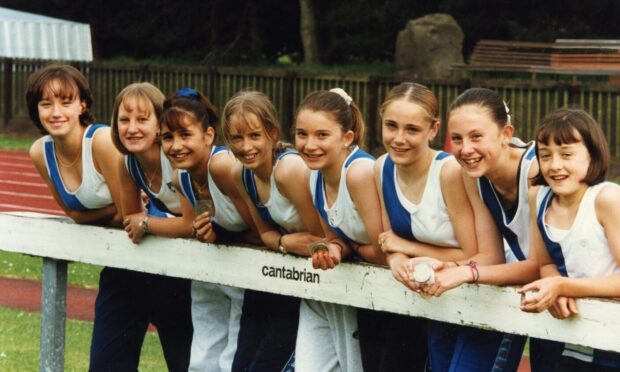
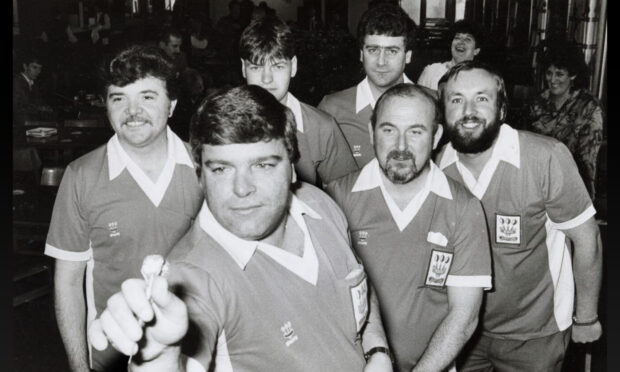
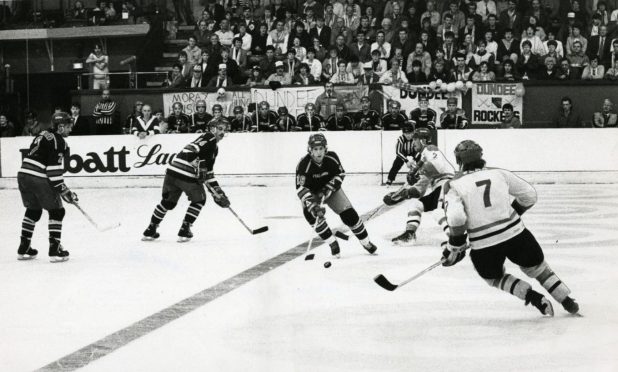
Conversation